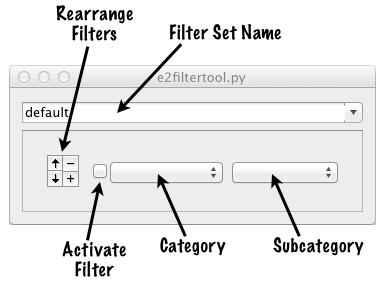|
⇤ ← Revision 1 as of 2011-10-10 17:47:03
Size: 603
Comment:
|
Size: 636
Comment:
|
| Deletions are marked like this. | Additions are marked like this. |
| Line 2: | Line 2: |
This program allows you to interactively construct sequences of processors and apply them to both 2-D and 3-D data. For example, if you need to determine the best parameters for automasking a 3-D volume, or if you wish to play with low-pass filtering your data with different options, this program provides an easy interface. |
This program allows you to interactively construct sequences of processors and apply them to both 2-D and 3-D data. For example, if you need to determine the best parameters for automasking a 3-D volume, or if you wish to play with low-pass filtering your data with different options, this program provides an easy interface. |
| Line 10: | Line 7: |
| When you open the program for the first time you will see two windows appear. One will contain the image you specified on the command-line. The other will look like this : |
|
| Line 13: | Line 8: |
When you open the program for the first time you will see two windows appear. One will contain the image you specified on the command-line. The other will look like this : {{attachment:filtertool1.png}} |
e2filtertool
This program allows you to interactively construct sequences of processors and apply them to both 2-D and 3-D data. For example, if you need to determine the best parameters for automasking a 3-D volume, or if you wish to play with low-pass filtering your data with different options, this program provides an easy interface.
Options:
No options. Provide the name of an image file to process. |
When you open the program for the first time you will see two windows appear. One will contain the image you specified on the command-line. The other will look like this :

